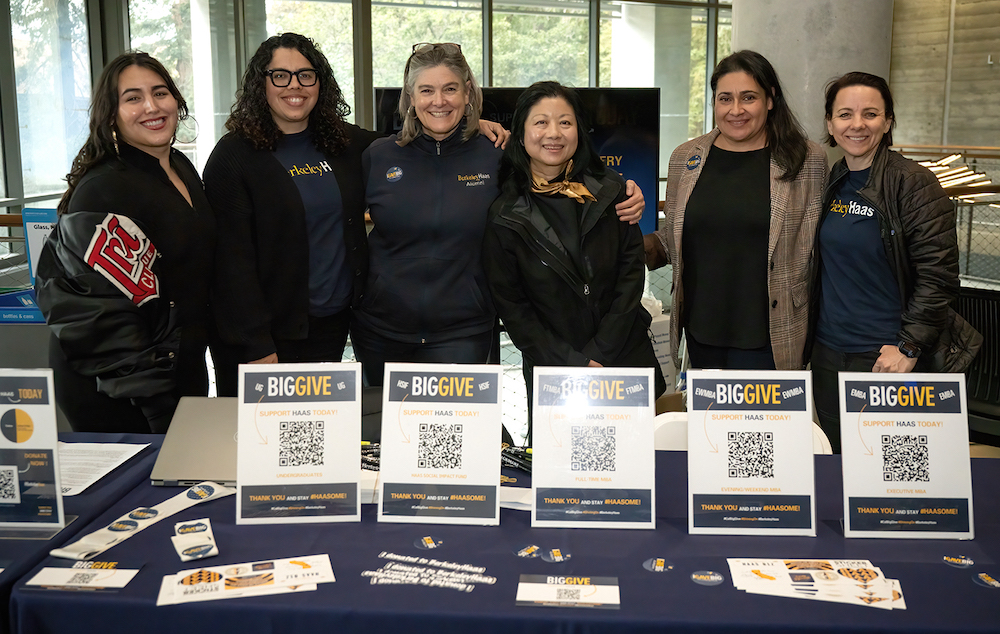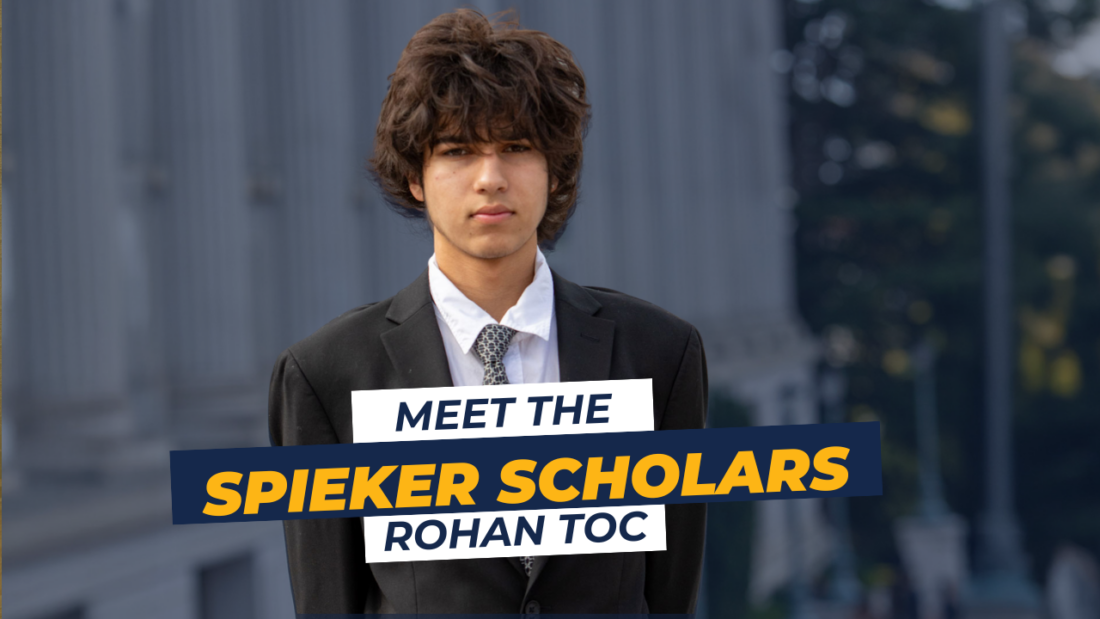Meet the Spieker Scholars: Claudia Lizeth Carrillo
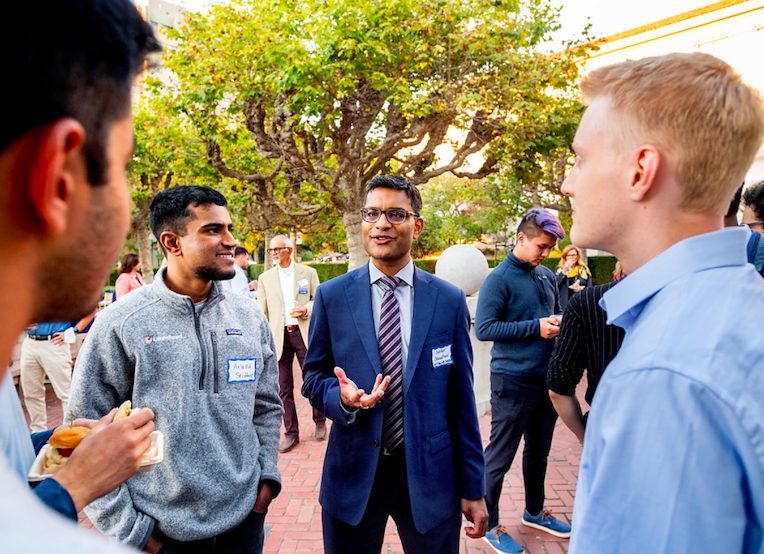
Saikat Chaudhuri recently celebrated his first year as faculty director for the Management, Entrepreneurship & Technology (M.E.T.) Program at Berkeley Haas—and says he’s just getting started.
Chaudhuri came to Haas from Wharton, where he was on the faculty for 16 years. He quickly became an enthusiastic champion of both UC Berkeley and M.E.T., the highly competitive dual-degree program jointly founded by Berkeley Haas and Berkeley Engineering in 2016. Along with overseeing M.E.T., he now teaches the two connected courses in the program, which enrolls about 55 students each year. In addition to serving as faculty director, Chaudhuri also holds the Grimes M.E.T. Chancellor’s Chair.
What are you the most proud of accomplishing during your first year?
I think what I’m most proud about—and what I hadn’t expected—is how much traction we’ve been able to get as such a young program. Academically, it’s very hard to build a reputation for a new program. Whether it’s our huge application numbers or even the press coverage, it’s really exciting for us to be noticed out there. And we are giving the finest peer institutions a run for their money, if I may add.
I’m also grateful for the fact that we have so much support everywhere: The two deans, the chancellor, the provost, our principal donor, are all behind us and they’re available, offering their counsel and backing whenever we need. And without the extraordinarily talented and dedicated program staff — Executive Director Chris Dito, Associate Director Dawn Kramer, and Marketing & Data Analytics Manager Althea Escalante – we would not be where we are.
We’ve come a long way. M.E.T. is attracting the best and brightest students for these two degrees, and they are pursuing them seamlessly, then embarking on accelerated careers that will make a mark!
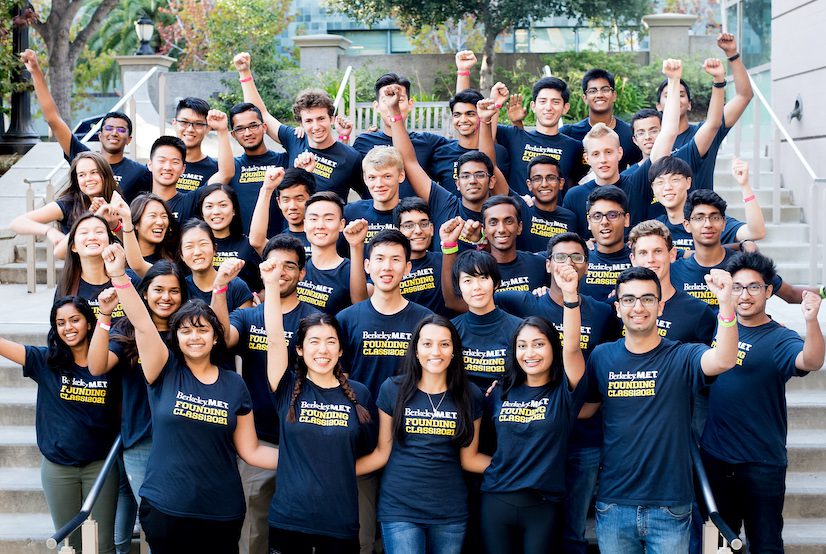
(Photo: Noah Berger)
M.E.T. is a unique program. Few schools offer degrees in business and engineering from two top-ranked undergrad programs. How do you explain the mission of M.E.T. ?
Our mission is to create leaders who can combine engineering and business in order to solve the world’s most pressing challenges in a scalable and sustainable way. And when I say leaders, I mean a diverse set of leaders: We want people from all kinds of backgrounds, industries, and locations, from Silicon Valley to the rest of the world. We want to be in a place where we can attract the most diverse, best, and brightest talent who also have the sense of that mission. Then we want to be able to give them the tools they need to go and transform industries, to disrupt healthcare, revolutionize transportation, solve climate change, do all of that. This is all driven by Berkeley’s core strength and innate culture: a desire to have a positive impact on society. And that is what I believe will be our competitive advantage!
Our mission is to create leaders who can combine engineering and business in order to solve the world’s most pressing challenges in a scalable and sustainable way.
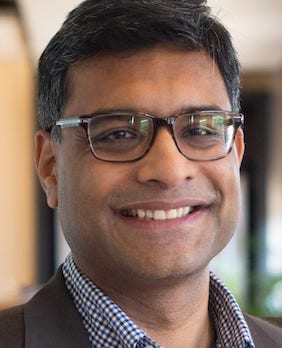
So what’s already in the works?
We’ve been working on a number of different areas. One is on the curricular side, where I redesigned the two dedicated linking courses all M.E.T.s take as cohorts. We had a freshman course and we had a senior course around leadership, but it was general and there was very little on management, entrepreneurship or technology, so I revamped these. I turned them into courses on technological innovation, entrepreneurship, and disruption. We introduced capstone projects as part of these classes. The freshmen last semester worked with aerospace manufacturer Blue Origin on commercial space applications. And the seniors worked on a project to help Indian communications company Tata Communications think about new technologies that are coming down the pipeline to create a new billion-dollar business.
On the co-curricular side, we have an incubator/accelerator that we’re working on which will have different components including an educational piece that we’ve started, a peer advising service that we’re launching this spring, and eventually small seed grants to allow students to pursue ventures. We don’t want to replicate everything at UC Berkeley, but there are a few things where we know that we could augment the entrepreneurial ecosystem, and where M.E.T. students can offer support to the rest of campus.
In addition, since we just graduated our first class last May, we’ve launched an alumni program which we refer to as “M.E.T. for Life.” The idea is to build a strong community that begins on campus and benefits M.E.T.s throughout one’s career and life no matter what stage they’re in, current student, recent alumni, or established alumni. We’re starting regional chapters, events, and online forums, along with a database that includes everybody so they can connect.
What’s next for M.E.T.?
We call our next phase M.E.T. 2.0. I see four big opportunities. One is more integration, rather than just parallel studies, among technology and management, engineering and business in the experience we offer. The second is a much deeper and broader set of connections to the real world in terms of expanding to more geographies and more industries in our curriculum, extracurriculars, and job recruiting. A third area is doing more with diversity, equity, and inclusion. And the fourth is the tremendous chance to do more marketing, getting more visibility for the program nationally and also globally. We’re sort of at the IPO moment: Now we can really spread our wings, we can have true impact.
How does diversity and inclusivity fit into the program?
Attracting, nurturing, and sending to the world a diverse and inclusive talent pool in all its forms is a goal we are embracing not only because it’s the right thing to do, but also because innovation and entrepreneurship benefit from different perspectives. So we want to be at the forefront of dismantling barriers, removing biases, and creating opportunities. This is very personal for me; being of Indian background, growing up in Germany attending an international school, and studying and working in the U.S. allowed me to work with people from all over the world from childhood, so I’ve experienced the power a multicultural, multifaceted group of friends and colleagues can bring.
Being of Indian background, growing up in Germany attending an international school, and studying and working in the U.S. allowed me to work with people from all over the world from childhood, so I’ve experienced the power a multicultural, multifaceted group of friends and colleagues can bring.
In that spirit, we’re doing a number of things in M.E.T. to further diversity, equity, and inclusion, beyond scholarships, which are one enabler. In our curriculum, because we believe it is a critical workplace skill to have, we’re building in workshops on managing diverse teams and points of view into the freshman and upper level program courses that I teach.
Another project we’re working on right now is a high school summer program launching in 2023 that we hope will serve as a great pipeline for diversity for us. It’s important to find these prospective applicants, high school students who might not necessarily have found the opportunity to apply directly to our program or who haven’t been exposed to these kinds of areas.
All in all, I can’t wait for what the future holds for M.E.T. I think we’re just getting started. I can reveal that we’ve got a few more initiatives up our sleeves to take our program to the next level over the next few years. I want us to play a part in letting UC Berkeley shine as a whole. The university is among the top five worldwide in my opinion, and we’ll try to help showcase why I truly believe these students are going to be at the forefront of solving the world’s most pressing challenges. I think they’re going to disrupt every industry that you can imagine for the better.
Posted in:

